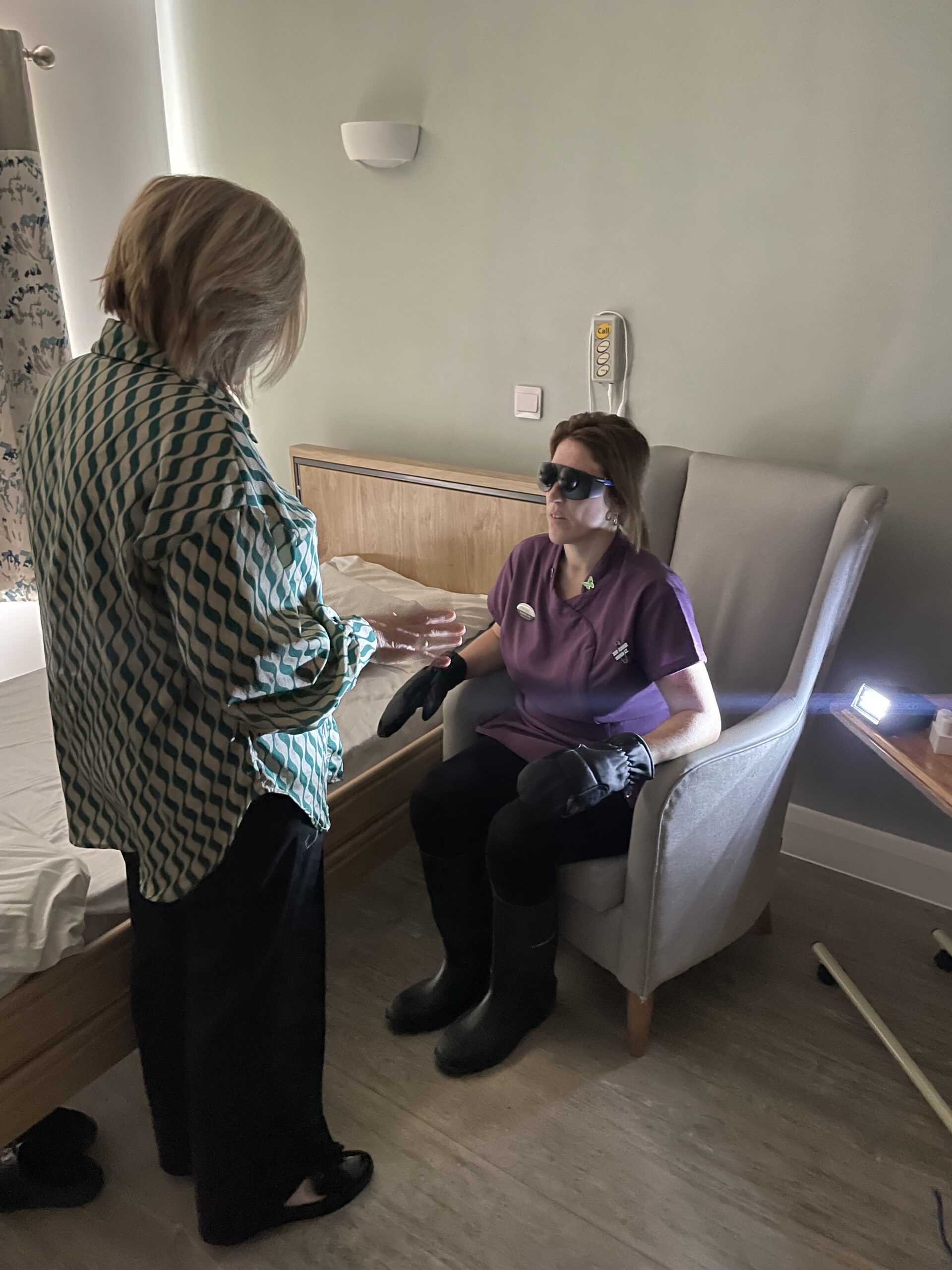How to Keep Active in Later Life: Exercise for the Elderly
Ageing is a natural process. As the years pass, our bodies inevitably grow weaker: our strength ebbs, our stamina lessens. But that doesn’t mean that older people should give up on exercise – on the contrary, following a regular fitness regimen yields enormous benefits.
Often the elderly can be reluctant to take up exercise. They may feel that it’s ‘too late’, that physical fitness doesn’t matter at their age, that their overall condition or their specific disabilities won’t allow them to take part in activities.
But virtually everyone, with love and encouragement from their caregivers, can improve their physical and mental health through exercise. Beyond the obvious health benefits, regular exercise invigorates the mind, inspires hope and just generally cheers people up!
The Positive Effects of Exercise for the Elderly
Physical benefits
A gentle conditioning routine has significant health advantages for all older adults. A regular workout helps to maintain a healthy weight while improving core fitness.
Exercise lessens the effects of several illnesses and chronic diseases that particularly affect the elderly. It can boost the immune system, improve digestive functioning, lower blood pressure, strengthen bone density and decrease the risks of heart disease, diabetes, osteoporosis and even Alzheimer’s.
Equally significantly, exercise leads to improved mobility, flexibility and balance.
Emotional and psychological benefits
The benefits of exercise go far beyond the physical. Exercise is a proven mood enhancer: endorphins, ‘feel-good chemicals’, are naturally released in the body through exercise.
These beneficial effects are long term: regular exercise reduces stress, helping older people cope with depression and anxiety. Other positive results include better sleep and improved mental capability. Exercise has even been shown to help dementia sufferers.
Becoming more physically active is also a confidence booster for the elderly: just as important as reducing the actual risk of falling, for example, is decreasing the fear of it, which can keep people from engaging in enjoyable activities.
Social benefits
Sometimes overlooked are the social advantages exercise brings. Loneliness and isolation can be serious problems for older adults. Group workouts mean more than merely people exercising together; they provide a sense of camaraderie and inspiration.

Exercise Routines
There are many workout plans for the elderly, depending on their level of mobility. Here are a few examples recommended by the NHS that improve the core areas of balance, flexibility and strength.
Balance
Balance exercises for the elderly are especially important in helping to prevent falls, a common worry of older people and those who love them.
- Try the heel-to-toe walk. Beginning in a standing position with the heel of one foot touching the toes of the other, move slowly forwards in a straight line.
- For the step-up, stand in front of a small step. Place one foot and then the other upon the step, then return to the floor again, foot by foot. This should be done slowly and deliberately.
Consider also integrating music into the exercise regimen. We’ve long known the considerable benefits of music for the elderly. It fosters social and cognitive connections, soothes or energises, and helps the memory. Now chalk up one more positive influence of music: it’s been shown to aid balance.
Flexibility
One of many examples of chair exercises for the elderly is the NHS-recommended upper-body twist. Sitting upright on a sturdy chair with feet flat on the floor, “cross your arms and reach for your shoulders. Without moving your hips, turn your upper body to the left as far as is comfortable. Hold for 5 seconds. Repeat on the right side”. This simple stretch fosters flexibility in the upper back.
Strength
Hip marching improves both flexibility and strength. Sitting upright, hold on to the sides of the chair, then lift your leg and bend your knee as far as possible without discomfort. Return the foot to the floor slowly and firmly. Repeat with the other leg.
The sit-to-stand builds strength. Sit on the edge of a chair, feet planted firmly, hip-length apart, on the floor. Leaning slightly forwards, stand up slowly, using the legs for power, not the arms. Stand upright, then slowly sit back down.
One useful resource that we use in a number of our homes is The Body Coach’s Home Workouts for Seniors. These videos are free on YouTube, allowing anyone with access to the internet the chance to take part.
Exercise and Activities in our Care Homes
At Westgate Healthcare we understand the importance of taking a holistic approach to resident care, and we realise that one size does not fit all. Meeting the physical, emotional, psychological and social needs of each of our residents has always been at the heart of our programme in our care homes.
We are thrilled to partner with Oomph Wellness, an organisation dedicated to improving the wellbeing of older adults through stimulating group activities. Their expert staff lead exercises tailored to the needs and capabilities of all levels of individual participants, creating safe and enlivening opportunities for better health – and they have a knack for making it enjoyable. You should see the fun we’re having!

Residents at Ashview Care Home recently carried out their own ‘Olympics’ on a beautiful spring day in the garden. Costumes, races, sunshine and laughter all added to the fun, proving that exercise doesn’t have to be boring to be rewarding!

Find a Home with Us
If you’re looking for a safe, stimulating home-from-home for your loved one, consider one of our care homes in Essex, Hertfordshire or Buckinghamshire.
At this time, in the midst of the coronavirus outbreak, our priority is the health and safety of our residents, so all of our care homes are under lockdown and will not be accepting visitors until the official health guidelines say that it is safe to do so. However we would still love to hear from you – you can get in touch with us to register your interest or find out more about any of our homes. We hope to see you when the pandemic is over!

